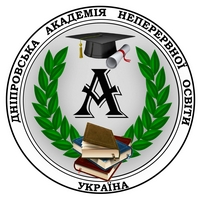SCIENTIFIC AND PRACTICAL PRINCIPLES OF ORGANIZATION OF PRESCHOOL INCLUSIVE EDUCATION
Abstract
The article defines and substantiates modern scientific and practical aspects of the organization of inclusive education of preschool children with different levels of psychophysical development in Ukraine: creation of favorable social conditions for the development of preschool children with psychophysical developmental disorders (corrective and developmental work aimed at overcoming the consequences of psychophysical disorders and formation of healthy children's adequate ideas about peers with psychophysical disorders, as well as leveling the consequences of cognitive, social and emotional deprivation), as well as providing them with equal rights in receiving educational services; determination of the structural and content features of inclusive education (use of adequate and specific forms of its organization, strengthening of the individually differentiated content of education and its focus on the formation of the child's life skills); creation of a holistic model of implementation of inclusive education in the conditions of a preschool educational institution, which provides the conditions for its effectiveness, based on system-complex and child-centered approaches; reflects the structural-functional and social orientation of the educational process; provides for the organization of education taking into account the level of psychophysical development and cognitive abilities of preschool children. It was found that it is in the preschool age that there is a unique opportunity to overcome the consequences of a certain sensory or intellectual impairment, to avoid the formation of a special position among healthy peers by normalizing the life of the child in the family and including the parents in the process of (re)habilitation. A number of problems in the implementation of inclusive preschool education have been identified: an insufficient share of the network of special preschool education institutions (groups) based on the place of residence of children with psychophysical development disorders; insufficient staffing; unpreparedness of preschool education institutions for inclusion (psychological and professional unpreparedness of teachers regarding the perception and work of children with psychophysical disorders, lack of material and technical equipment, etc.); lack of software and methodological support for inclusive education of preschoolers with psychophysical disorders; insufficient consolidation of efforts of specialists, parents, scientists in the field of organization of medical, psychological and pedagogical support of preschoolers with psychophysical disorders; the presence of interdepartmental barriers in the organization of joint education and upbringing of preschoolers; monitoring the results of joint education of children with psychophysical development disorders with healthy peers; lack of a system of early diagnosis and comprehensive medical, psychological and pedagogical support. The activity of the separate preschool department «Sonechko» of the Krupiv NRC is analyzed - a new type of institution that provides comprehensive psychological, medical and pedagogical assistance to children with complex disorders of psychophysical development of early and preschool age.
References
2. Кузава І. Б. Теоретико-методологічні аспекти інклюзивної освіти дітей дошкільного віку, які потребують корекції психофізичного розвитку. Педагогічний пошук. Луцьк. 2012. № 1 (73). С. 21–23.
3. Кузава І. Б. Спеціальні дошкільні навчальні заклади як навчально-методичний та кадровий ресурс інклюзивної освіти. Актуальні проблеми ортопедагогіки та ортопсихології: матеріали І Всеукр. наук.-практ. конфер. (м. Київ, 1-2 лист. 2012 р.). Київ. 2012. С. 73–76.
4. Кулачківська С. Є., Ладивір С. О. Я-дошкільник (вікові та індивідуальні аспекти психічного розвитку). Київ: Нора-прінт, 1996. 108 с.
5. Психолого-педагогічна діагностика розвитку дітей раннього дошкільного віку: навчально-методичний посібник / за наук. ред. Л. А. Федорович. Кременчук: Християнська Зоря, 2008. 217 с.
6. Guralnick M. J. A framework for change in early childhood inclusion. In M. J. Guralnick (Ed.), Early Childhood inclusion: Focus on change. Baltimore: Paul H. Brookes Publishing Co. 2001. P. 3–35.
7. Mc William R. A. Assessing the resource needs of the families in the context of early intervention. In M. J. Guralnick (Ed.), The Developmental Systems Approach to Early Intervention. Baltimore: Paul H. Brookes Publishing Co. 2005. P. 215–234.

 ISSN
ISSN  ISSN
ISSN 

